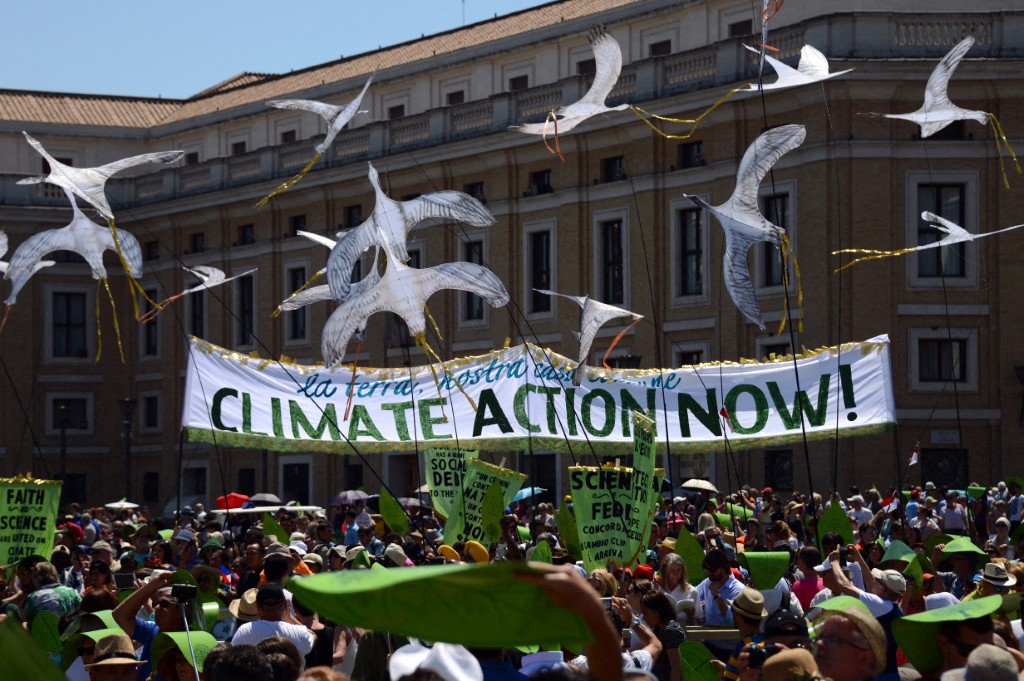A sweeping review of climate-related misinformation has found that false and misleading narratives are undermining public trust, delaying urgent action, and escalating the climate crisis into a potential catastrophe.
The report, released by the International Panel on the Information Environment (IPIE), systematically examined 300 peer-reviewed studies published between 2015 and 2025.
It identified fossil fuel companies, political actors, and state institutions as key drivers of misinformation, which now targets not only climate science but also the proposed solutions to the crisis.
Researchers found that climate denialism has evolved into coordinated campaigns aimed at discrediting renewable energy and obstructing mitigation efforts.
These narratives—such as the unfounded claim that renewables caused recent power outages in Spain—are amplified by online bots, troll farms, and partisan media.
The IPIE report notes a “dual deception” by fossil fuel companies, which publicly present themselves as climate-conscious while internally delaying or resisting emissions reductions.
Similar tactics have been observed in sectors such as aviation, fast food, tourism, and animal agriculture.
While most of the research focuses on the Global North, particularly the United States and Europe, the report flags a “severe gap” in studies from the Global South.
Asia, despite being highly vulnerable to climate impacts, remains underrepresented in the literature. The report cites a study from Malaysia that attributes most climate-related misinformation to political figures.
Another study found that in China, some conspiracy theories portray climate change as a Western ploy to hinder national development.
The findings raise concerns over the growing influence of political actors who reject or downplay climate science.
In the United States, President Donald Trump is identified as a central figure in spreading climate disinformation online, often echoed by bot networks.
In Europe, rightwing populist parties—such as Germany’s AfD, Spain’s Vox, and France’s National Rally—are noted for promoting climate skepticism through nationalist framing and attacks on international climate policies.
According to IPIE, the spread of climate misinformation is not limited to social media. It also circulates through traditional media, corporate communications, think tank publications, and state-run outlets.
In some cases, media organizations with conservative leanings have amplified denial and skepticism, while scientific misinformation has been promoted under the guise of expert commentary.
The report outlines several areas where misinformation weakens the response to climate change: it distorts public understanding, erodes confidence in scientific consensus, and fosters political inaction.
Researchers warn that if left unchecked, this disinformation crisis could jeopardize the narrow window remaining to halve emissions by 2030 and reach carbon neutrality by mid-century.
To address the problem, IPIE recommends legal and regulatory reforms, standardized emissions disclosures, broader coalitions among stakeholders, and public education efforts.
The authors stress the importance of improving content moderation on digital platforms and expanding research on underrepresented regions, particularly in Asia and Africa.
International momentum to tackle climate misinformation is growing. The UN special rapporteur on human rights and climate change, Elisa Morgera, has called for criminal penalties against fossil fuel companies and advertising firms that spread false or misleading information.
Brazil, host of the upcoming COP30 summit, will lead a new global initiative to counter disinformation, backed by UNESCO and supported by countries including the UK, France, Chile, and Morocco.
The IPIE report said that climate misinformation is not only intensifying the crisis—it is undermining the democratic processes needed to resolve it.







